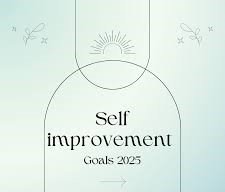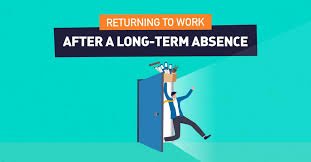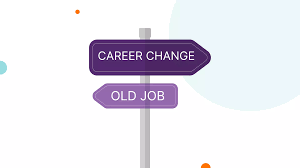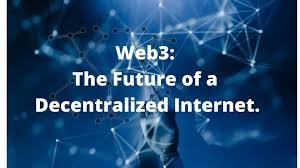
Top Free Self-Improvement Resources to Boost Your Skills in 2025
Top Free Resources for Self-Improvement in 2025
In today’s fast-paced world, self-improvement has become more than just a buzzword—it’s a necessity. Whether you are looking to enhance your career prospects, learn new skills, or develop personally, having access to the right resources can make all the difference. Fortunately, in 2025, there is a wealth of free self-improvement resources available online, making personal growth more accessible than ever. From online courses to podcasts, apps, and communities, there’s something for everyone. In this blog, we’ll explore the top free resources for self-improvement that you can leverage in 2025.
1. Massive Open Online Courses (MOOCs)
One of the most powerful tools for self-improvement in 2025 is MOOCs. Platforms like Coursera, edX, and FutureLearn offer thousands of free courses on a wide range of topics—from business management and technology to psychology and creative arts. Many of these courses are designed by top universities and industry leaders, ensuring high-quality content.
For instance, if you want to improve your leadership skills, Coursera offers courses like “Foundations of Leadership” from the University of Illinois. Similarly, edX provides “The Science of Happiness” from UC Berkeley for those looking to enhance their emotional intelligence and overall well-being. The best part? Most MOOCs are free if you choose the audit option, which allows you to access all course materials without paying for a certificate.
Tips for Maximizing MOOCs:
-
Set a schedule to stay consistent.
-
Take notes while learning to reinforce concepts.
-
Engage in discussion forums to gain diverse perspectives.
2. Educational YouTube Channels
YouTube is no longer just a platform for entertainment—it has evolved into a rich repository of knowledge. Many creators and institutions provide high-quality, free educational content on topics ranging from personal development to technical skills.
Channels like TEDx Talks, Khan Academy, CrashCourse, and Productivity Game offer actionable advice, tutorials, and inspiring talks that can significantly contribute to your personal and professional growth. You can learn about time management, productivity hacks, effective communication, financial literacy, and even meditation techniques—all for free.
Tips for Using YouTube Effectively:
-
Subscribe to channels that align with your learning goals.
-
Create playlists for structured learning.
-
Apply what you learn immediately for better retention.
3. Podcasts for Personal Growth
Podcasts are an excellent resource for self-improvement, especially if you spend a lot of time commuting or exercising. In 2025, podcasts on personal development, productivity, and entrepreneurship have become increasingly popular.
Some top free podcasts include:
-
The Tim Ferriss Show: Learn strategies and habits from top performers.
-
The Tony Robbins Podcast: Insights on personal growth and motivation.
-
The School of Greatness by Lewis Howes: Covers health, mindset, and business.
-
HBR IdeaCast: Offers leadership and business insights.
The advantage of podcasts is that they provide bite-sized knowledge and inspiration, which you can consume on the go.
Tips for Maximizing Podcasts:
-
Listen actively and take notes on key takeaways.
-
Apply one actionable insight each week.
-
Mix motivational podcasts with skill-based ones for balanced growth.
4. Skill-Building Apps
Several free apps in 2025 focus on enhancing skills ranging from mental health to productivity and language learning. Examples include:
-
Duolingo: For learning new languages in a fun, gamified way.
-
Habitica: Turns habit-building and personal goals into a game.
-
Insight Timer: Free meditation app to reduce stress and improve focus.
-
Khan Academy: Offers structured learning for academic and professional growth.
-
Coursera & edX apps: Access free course content on mobile.
These apps provide a convenient way to develop habits and skills without the constraints of formal education.
Tips for Using Skill-Building Apps:
-
Set small, achievable goals to maintain motivation.
-
Track your progress consistently.
-
Integrate learning into daily routines for better results.
5. Online Communities and Forums
Learning doesn’t happen in isolation. Being part of a community of like-minded individuals accelerates personal growth. Platforms like Reddit (r/selfimprovement, r/productivity), Quora, and LinkedIn Groups offer free access to discussions, resources, and mentorship opportunities.
Being active in these communities allows you to:
-
Ask questions and clarify doubts.
-
Get feedback on your ideas and projects.
-
Stay updated with trends in personal and professional development.
Tips for Community Learning:
-
Engage actively rather than just reading posts.
-
Share your experiences to build credibility and confidence.
-
Learn from both successes and mistakes of others.
6. Free eBooks and Audiobooks
In 2025, there’s an abundance of free eBooks and audiobooks for self-improvement enthusiasts. Websites like Project Gutenberg, LibriVox, and Open Library provide classic and contemporary books that can help improve knowledge, mindset, and skills.
From motivational books like “Think and Grow Rich” to academic and professional guides, these resources are invaluable for anyone looking to enhance their personal or professional life.
Tips for Reading Effectively:
-
Set a daily reading goal (e.g., 20–30 minutes).
-
Summarize key points after each chapter.
-
Discuss ideas with peers for better understanding.
7. Blogs and Newsletters
In addition to courses and apps, high-quality blogs and newsletters are excellent free resources for self-improvement. Blogs such as James Clear’s Blog (for habit-building), Mark Manson (for mindset and life lessons), and newsletters like The Hustle (for business and productivity insights) provide practical advice, case studies, and actionable tips regularly.
Tips for Utilizing Blogs and Newsletters:
-
Subscribe to sources aligned with your interests.
-
Dedicate time weekly to read or summarize learnings.
-
Apply insights in your daily life for tangible improvement.
Conclusion
Self-improvement is a continuous journey, and the year 2025 has made it easier than ever with a plethora of free resources. By leveraging MOOCs, YouTube channels, podcasts, skill-building apps, communities, eBooks, and blogs, you can enhance your knowledge, skills, and mindset without spending a dime. The key is consistency and the willingness to learn. Start small, focus on your goals, and gradually integrate these resources into your daily routine for maximum impact.
Remember, the journey of self-improvement is personal—choose the resources that resonate with you and adapt them to your unique growth path. By committing to lifelong learning, you are investing in the most valuable asset: yourself.
FAQs
1. Are these self-improvement resources truly free?
Yes. Most platforms offer free access to content, especially if you opt for the audit version on MOOCs or access free versions of apps and podcasts. Some may have paid options for certifications or advanced features, but the core learning is free.
2. How much time should I dedicate to self-improvement daily?
Even 20–30 minutes daily can create significant results over time. Consistency is more important than the duration, so focus on building a sustainable habit.
3. Can I improve both personal and professional skills using these resources?
Absolutely. Resources like MOOCs, podcasts, blogs, and apps cover a broad spectrum of topics from emotional intelligence and leadership to productivity and technical skills.
4. How do I choose which resources to use?
Identify your goals first. If you want technical skills, MOOCs and YouTube tutorials are ideal. For mindset and habits, podcasts, blogs, and apps like Habitica are better. Mix and match based on your needs.
5. Is it possible to stay motivated using only free resources?
Yes, but it requires discipline. Set clear goals, track your progress, join communities for accountability, and apply what you learn to see tangible results. Motivation grows when you see improvement over time.




